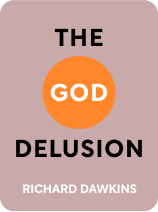

This article is an excerpt from the Shortform book guide to "The God Delusion" by Richard Dawkins. Shortform has the world's best summaries and analyses of books you should be reading.
Like this article? Sign up for a free trial here .
What is the categorical imperative? What does it mean for religion and morality?
The categorical imperative is the idea that individual moral principles should be judged on the basis of whether or not they would make sense as universal principles. This indicates that religion shouldn’t be the deciding factor about what is or isn’t moral.
Read more about the categorical imperative below.
The Categorical Imperative
One final moral claim advanced by the religious community is that religion provides absolute moral standards. Religion, they argue, is the only force capable of telling human beings what is good and what is evil in all cases.
Without the absolute and universal moral clarity of religion, they claim, each individual would be free to decide for themselves what is and is not moral. Anything could be justified under such a flimsy moral framework. But is this really true? But does religion truly have a monopoly on absolute moral standards?
The 18th-century German moral philosopher Immanuel Kant would have likely disagreed. He put forward a theory of morality that could operate without God. Kant’s categorical imperative argues that individual moral principles should be judged on the basis of whether or not they would make sense as universal principles.
For example, if you cheat on a test because it’s inconvenient and burdensome for you to get good results by studying, would you then be in favor of a universal law that justifies cheating in all situations where working hard is inconvenient? Is a world in which people did this as a matter of routine a world in which you’d like to live? If your answer is no, then you must judge your own conduct as immoral under the categorical imperative.
Kant’s categorical imperative provides a moral standard that exists entirely outside of religion—it does not require the existence of God, nor the acceptance of a holy text. It demonstrates that morality can exist wholly without reference to religion.

———End of Preview———
Like what you just read? Read the rest of the world's best book summary and analysis of Richard Dawkins's "The God Delusion" at Shortform .
Here's what you'll find in our full The God Delusion summary :
- Why Dawkins thinks religion has exerted a harmful influence on human society
- How Dawkins concludes that the existence of God is unlikely
- The 3 arguments that challenge the existence of God






